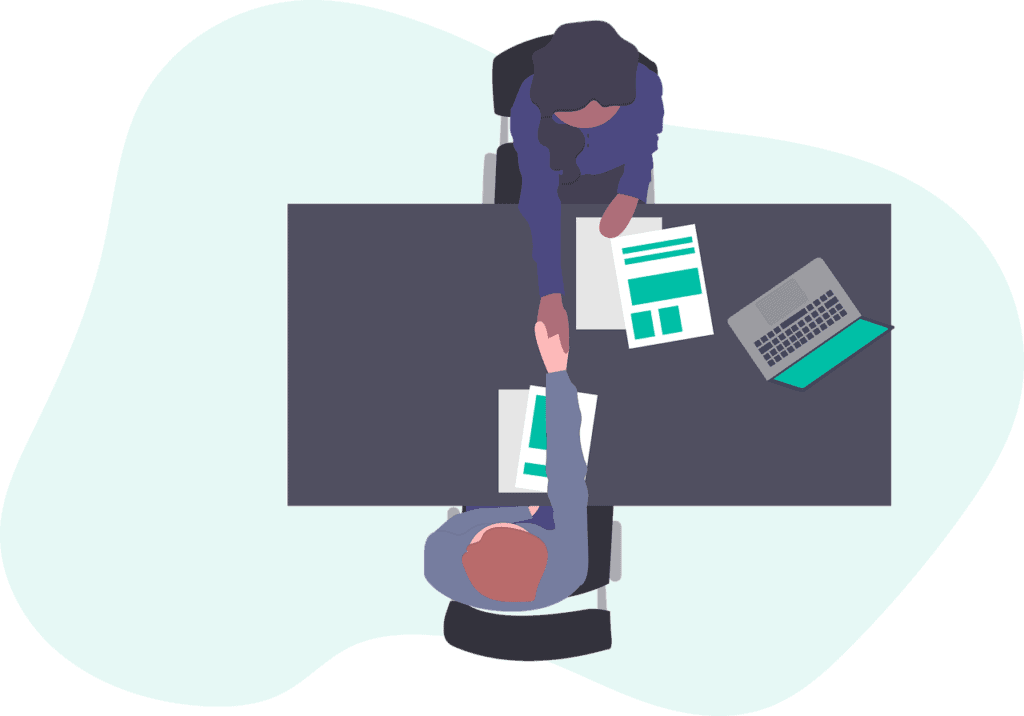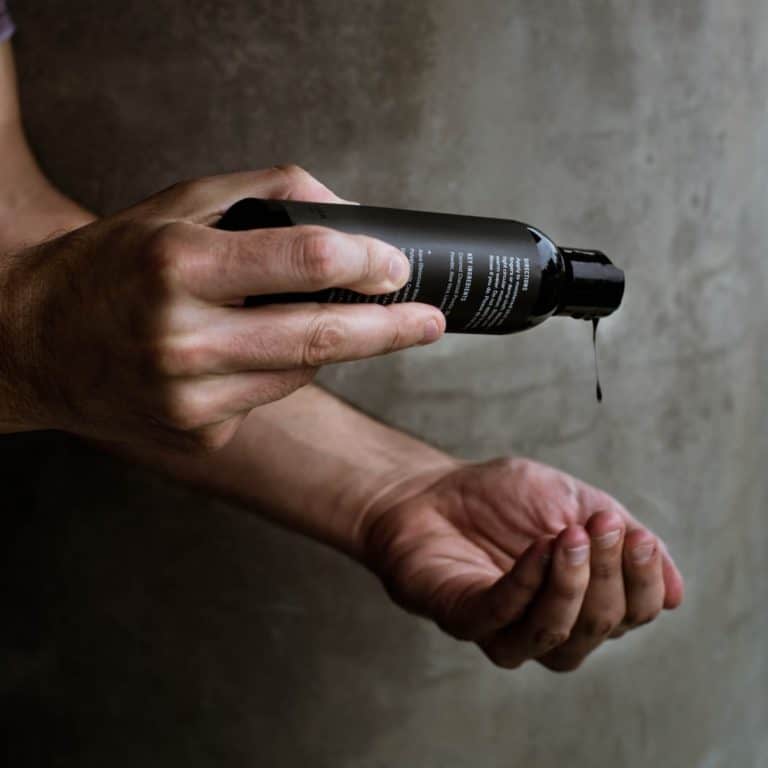If you are looking to become a nurse in Australia, then you will likely be asked a range of questions in your interview. Interviewing for a nursing position can be nerve-wracking, but knowing what to expect and preparing answers ahead of time can help ease your nerves.
In this blog post, we will outline 11 common nursing interview questions in Australia and provide tips on how to answer them effectively. Let’s get started!
Why Is It So Important To Prepare Answers to Interview Questions Ahead Of Time?

This may sound like a silly question, but I have sat through a lot of job interviews where the applicant had absolutely no idea how to answer common interview questions.
When you are interviewing for any position, it is important to be prepared to answer questions about your qualifications, experience, and goals. However, this is especially true for nursing positions. This is because nursing is such a demanding, challenging and highly competitive profession.
If you can’t confidently answer questions about why you want to be a nurse and what makes you qualified for the job, then the interviewer may question whether you are truly committed to the profession.
What Do The Interviewers Want To Know?
When interviewers are looking for the best candidates, they want to know what sets you apart from the rest.
They want to know what you know about nursing practice and if you are dedicated to providing high quality patient care.
When preparing for a job interview, take the time to research the medical facility and the specific nursing position you are applying for. This will help you be able to answer questions about your nursing career in a way that is tailored to the facility and position.
Be prepared to talk about your motivation for pursuing a nursing career, as well as your long-term career goals. They will want to see that you have a clear understanding of the nursing profession and career, and that you are motivated to continue your education and improve your skills.
By being prepared and confident in your answers, you will be able to make a strong impression on the interviewers and give yourself the best chance of getting the nursing job you want.
Common Nursing Interview Questions – Australia
Now that we’ve touched on what the interviewers want to know and why it’s so important to prepare your answers ahead of time, let’s dive into what the most common and important questions are, what they really want to know, and how to answer them.
1) Why did you choose nursing as your profession?
This is probably one of the most common questions asked in nursing interviews, and for good reason.
The interviewer wants to know your motivation for becoming a nurse and what it is that drew you to the profession and the particular nursing practice you have applied for.
To answer this question effectively, you should talk about why you find nursing to be a rewarding and fulfilling profession.
You could discuss how you enjoy working with patients and helping them through difficult times, or how you appreciate the opportunity to make a difference in someone’s life and why you are interested in the medical field.
You could also respond by telling a personal story that has driven your motivation. Whatever your reasons are, be sure to explain why you believe nursing is the right career choice for you.
2) What do you think are the most important qualities of a successful nurse?
This question is designed to test your knowledge of the nursing profession and what it takes to be a successful nurse.
To answer this, you should talk about qualities such as empathy, compassion, patience, strong communication skills, the ability to work well under pressure and provide the best possible care in an evidence based practice.
You could also discuss how important it is to be able to work as part of a team and how essential it is to have a passion for helping others.
If you are applying for a more senior role, you should also touch on your ability to mentor nurses.
3) What do you think sets you apart from other applicants?
This question is another way of asking what makes you the best candidate for the job.
When answering this question, you should talk about your unique skills, qualifications and experience that make you the ideal candidate for the role.
You could discuss how your previous experience in a hospital or medical setting has given you an insight into the challenges faced by nursing staff on a daily basis.
You could also talk about how your compassion and caring nature allows you to connect and build a good relationship with patients and provide them with the best possible care in order to achieve the best possible patient outcomes.
If you have any unique qualifications or skills, such as bilingualism or experience in a particular area of nursing, be sure to mention those as well.
4) Why did you choose to apply to our medical facility?
The interviewer wants to know if you have done your research on the medical/health facility and if you are truly interested in working there.
To answer this question, you should talk about what attracted you to the facility and why you believe it would be a good fit for you.
You could discuss how the facility’s values align with your own personal values, or how the facility’s focus on providing excellent patient care is something that resonates with you.
You could also talk about how the location of the facility is convenient for you, or how the size of the facility is just right.
Whatever your reasons are, be sure to explain why you believe this medical facility is the best place for you to work.
5) Tell us about a time when you had to deal with a difficult patient or family member.
This question is designed to test your ability to deal with challenging and stressful situations.
When answering this question, you should describe a situation where you had to go above and beyond to care for a difficult patient or family member that had a positive outcome.
You could discuss how you remained calm and professional despite the challenges you faced, or how you were able to diffuse a tense situation.
You could also talk about how you were able to provide excellent patient care despite the difficulties you encountered.
Whatever the situation was, be sure to explain what made it challenging and how you coped with the challenge.
6) Tell us about a time when you made a mistake at work and how you handled it.
Here, the interviewer wants to know your ability to deal with difficult situations and learn from your mistakes, and how much supervision you require.
To answer this question effectively, you should describe a situation where you made a mistake at work and how you handled it well. You could discuss how you took responsibility for your mistake, or how you learned from the experience and changed your approach in order to put your best foot forward and avoid making the same mistake in the future.
Be sure to explain what went wrong and how you coped with the consequences.
7) Describe a time when you went above and beyond for a patient.
This question is designed to test your ability to provide excellent patient care and your self awareness.
To answer this question effectively, you should describe a situation where you went above and beyond the call of duty to care for a patient.
You could discuss how you went out of your way to make sure the patient was comfortable, or how you took extra time to explain things to the patient in order to ensure they understood their treatment plan.
You could also talk about how you advocated for the patient when they were not able to do so themselves – be sure to explain what made you go above and beyond and how it benefited the patient.
8) Tell us about a patient that has had the biggest impact on your career.
The interviewer essentially wants to know your ability to connect with patients.
To answer this question effectively, you should discuss a patient that has had the biggest impact on you.
You could discuss how the patient’s story touched you, or how the patient motivated you to become a better nurse and in turn how this patient perceives you and your level of dedication and care.
You could also talk about how the patient challenged you and helped you grow as a nurse. Be sure to explain what it was about this particular patient that had such a big impact on you.
9) What do you think is the biggest challenge facing nursing today?
This question is designed to test your ability to think critically about the nursing profession.
To answer this question effectively, you should be able to discuss the issues that you believe are the biggest challenge facing the nursing profession today.
You could discuss how nurses are undervalued and overworked, or how there is a shortage of nurses which leads to increased workloads and stress levels.
You could also talk about how the nursing profession is changing and how this can be both a good and a bad thing. Be sure to explain why you believe this issue is the biggest challenge facing nursing today.
10) What are your long-term career goals?
This question will be asked in all professional interviews and is one of the most important questions of all.
The interviewer wants to understand your level of commitment to the nursing profession and whether or not you are motivated to continue climbing the ladder.
You should have a well-thought-out answer that demonstrates your career planning and ambition. You could discuss how you would like to progress within the nursing profession, or how you would ultimately like to use your skills and experience in a different area of healthcare.
I would also recommend you talk about how you would like to further your education and training in order to become a specialist nurse or nurse practitioner. Be sure to explain why you have chosen these goals and how you plan to achieve them.
11) Why Are You Leaving Your Previous Role?
If you are currently employed, the interviewer will want to know your reasons for wanting to leave your current role.
It’s important to be honest here, but avoid being negative about your current or previous employer.
You could discuss how you are looking for a new challenge, or how you want to further your career in a particular area.
You could also talk about how you are relocating for personal reasons, or how you feel it’s time for a change. Be sure to explain your reasons clearly and concisely.
Other Things To Have Prepared Before An Interview
1) References
Be sure to have at least two references prepared, as most employers will ask for them during or after the interview.
Your references should be professionals who can vouch for your skills and experience, such as a former employer or supervisor.
2) Questions Of Your Own

It’s always a good idea to have some questions prepared for the interviewer. This shows that you are interested in the role and the company, and it gives you an opportunity to find out more about what they are looking for.
Some examples of good questions to ask include:
- What are the main priorities for this role?
- What type of patients will I be caring for in this role?
- In what areas did my predecessor struggle?
4) Salary Expectations
Be sure to have an idea of what you want to earn in your new role. This will help you to negotiate a fair salary if you are offered the job. Have a look on websites such as seek to get an idea of what to expect.
5) Your Appearance
First impressions count, so it’s important to dress appropriately for the interview. Nursing is a professional career, so you should avoid wearing casual clothes.
6) Be Prepared For A Case Study
Some employers may ask you to complete a case study during the interview. This is usually given to test your critical thinking and problem-solving skills.
If you are asked to complete a case study, be sure to take your time and read the instructions carefully. Once you understand what is required, start planning your approach.
The STAR Interview Format

One of the best ways to prepare for your nursing interview is to use the STAR interview format.
The STAR interview format is a great way to structure your answers to common questions. It helps you to focus on specific examples of times when you have shown particular skills or abilities.
The STAR interview format stands for:
S– Situation
T– Task
A– Action
R– Result
Let’s say you are asked the question, “tell me about a time when you had to deal with a difficult patient.”
Using the STAR format, you would first describe the situation (S) you were in, then the task (T) you had to do, the action (A) you took, and finally the result (R) of your actions.
For example:
S- I was working the night shift in the emergency room and we had a patient who was brought in by ambulance after overdosing on drugs.
T- My task was to assess the patient and provide care while they were waiting to be seen by a doctor.
A- I assessed the patient’s vital signs and administered oxygen through a mask. I also spoke with the patient calmly and reassuringly, while keeping them under close observation.
R- The patient’s condition improved and they were able to be discharged when they sobered up.
By using the STAR interview format, you can give specific examples of your skills and abilities, which will help you stand out from other candidates.
Conclusion

Nursing interview questions in Australia can be intimidating, but if you are prepared and have done your research, you will be able to impress your interviewer and land the job you want.
By asking the right questions and giving well-thought-out answers, you can show that you are the best candidate for the role.
Thanks for reading, and please reach out if you would like to discuss any of the above or have any further questions!






